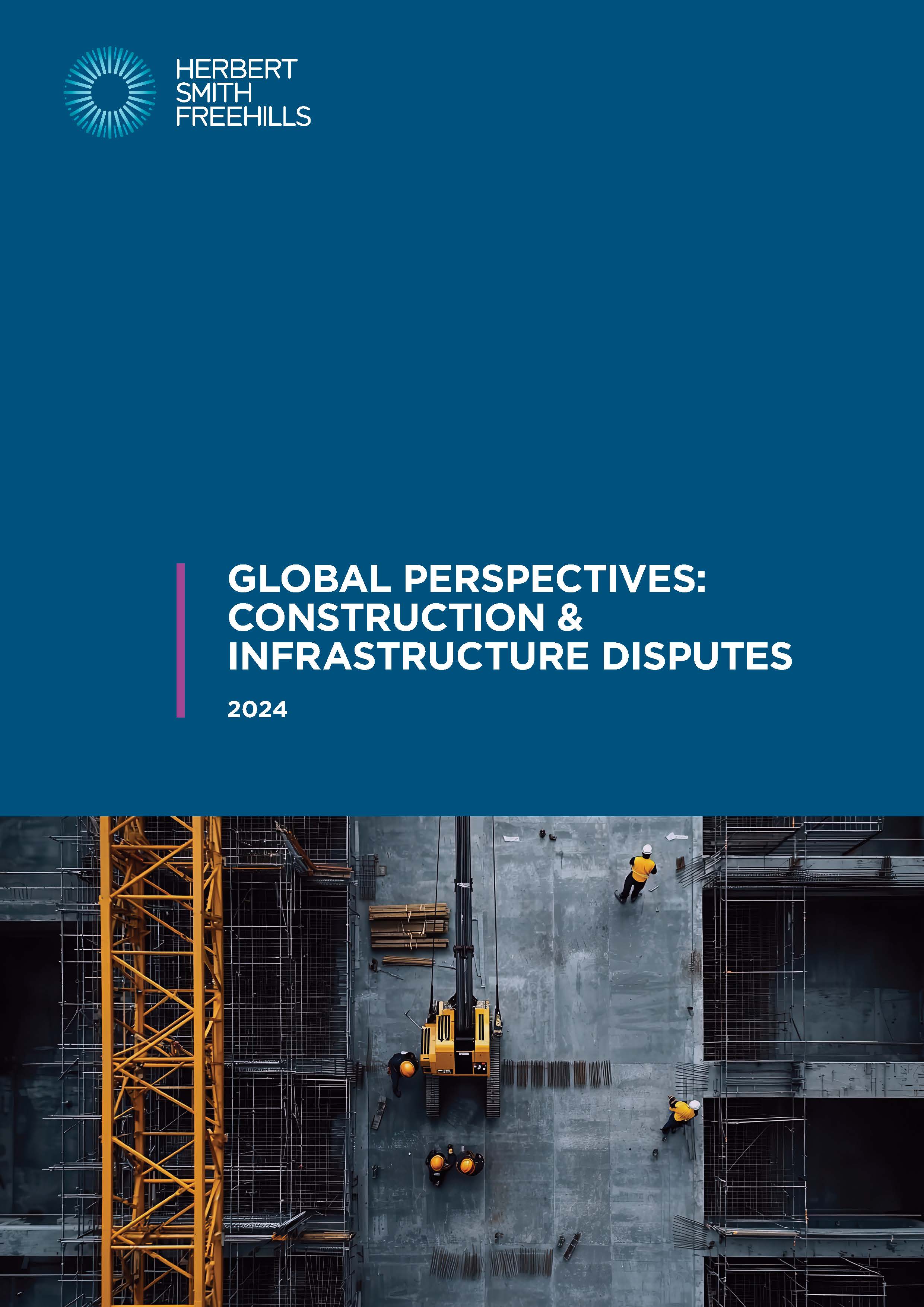Our Global Perspectives: Construction and Infrastructure Disputes 2024 roundup offers concise updates from our global network, highlighting significant developments in the construction and infrastructure sectors from the past year.
2024 has been another challenging year for the global construction industry. Global inflation remains above pre-pandemic levels which, together with supply chain disruptions and ongoing geopolitical tensions, has contributed to increased costs and delays on construction projects worldwide. With margins continuing to be impacted, contractors are more readily pursuing claims to mitigate their financial losses and are resorting to less conventional means and creative legal avenues through which to bring claims. We have also seen a steady rise in termination cases and related bond calls.
Despite these challenging conditions, however, positive steps have been taken in relation to the global energy transition and countries' efforts to achieve net zero targets. Japan has completed its third offshore wind round, following two successful auctions in 2021 and 2023. Across the world, Spain has introduced a new regulatory framework for offshore renewable energy facilities, and in Germany, the energy regulator has authorised the implementation of its first hydrogen core network. South Africa's new project preparation bid window is also expected to build on 12 infrastructure initiatives including LNG infrastructure and gas power projects, which are expected to play an important role in advancing South Africa's energy transition.
Meanwhile, in the UK, the Supreme Court has handed down a landmark judgment on Scope 3 emissions, which will have significant implications for the development of certain infrastructure and more traditional energy and power projects.
Elsewhere, there have been notable construction law developments, for example, in Thailand, which has introduced a draft bill to address the long-standing issue of non-payment of contractual debts in the Thai construction industry. The State of Victoria, Australia, is also due to introduce long-awaited changes to its security of payment legislation to strengthen the statutory right to payment and improve the adjudication process.
In this publication, we provide a snapshot of substantial developments from around the world in 2024, carrying important implications for construction and infrastructure disputes.
Snapshot
Asia
China
The shifting disputes landscape faced by outbound Chinese contractors
Japan
Rising labour costs in Japan's race for renewable energy
Singapore
Transforming construction: Collaborative contracting takes off in Singapore
Thailand
Upcoming draft bill to address payment disputes on Thai construction projects
Australia
New South Wales
Trends in proactive contract management and key case on proportionate liability
Queensland
Practical considerations when calculating operational liquidated damages
Victoria
Security of payment reform and the impact on renewables projects
Western Australia
Arbitration and adjudication as preferred dispute resolution mechanisms on Australian energy transition projects?
Meet our Construction and Infrastructure Disputes Team
Key contacts
Legal Notice
The contents of this publication are for reference purposes only and may not be current as at the date of accessing this publication. They do not constitute legal advice and should not be relied upon as such. Specific legal advice about your specific circumstances should always be sought separately before taking any action based on this publication.
© Herbert Smith Freehills 2024
Stay in the know
We’ll send you the latest insights and briefings tailored to your needs










